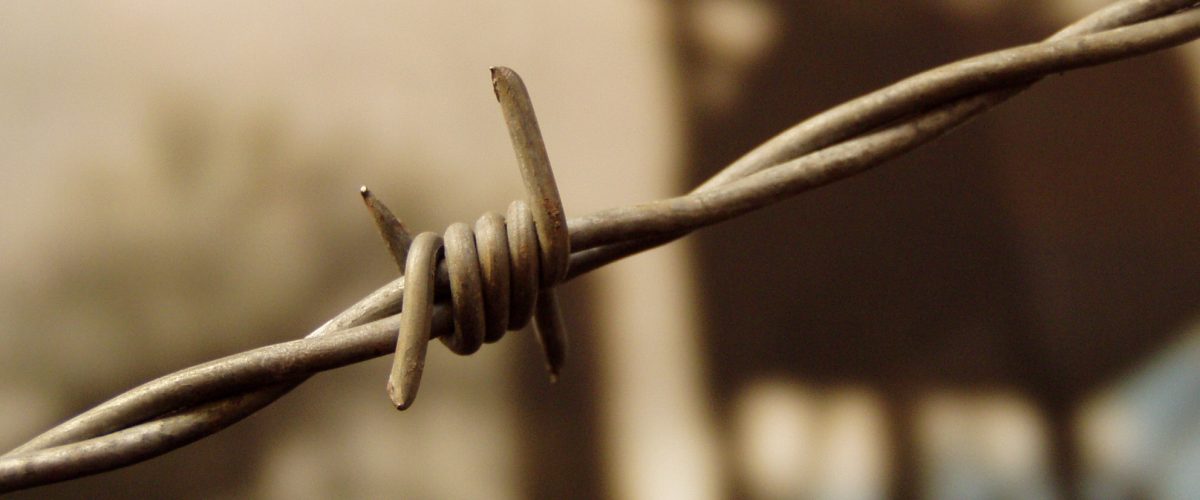
Cascio: Lessons in leadership learned from ‘institutional entrepreneurs’ at Robben Island prison
A Chinese proverb says the longest journey begins with the first step. It took countless steps, along with powerful resolve and resilience, but Nelson Mandela and his fellow political inmates in Robben Island prison forged ahead ever so slowly. They transformed a place of brutality and oppression into one of tolerance, dignity and education.
 Wayne Cascio, PhD, who holds the Robert H. Reynolds Distinguished Chair in Global Leadership at the University of Colorado Denver Business School, said today’s business leaders can learn much from the metamorphosis that occurred within those grim walls over 30 years. A large audience filled a Business School lecture room to hear Cascio’s “Lessons in Leadership” talk, part of the Rutt Bridges Business Seminar Series, about his six-year research project into the unfathomable dynamics of Robben Island prison.
Wayne Cascio, PhD, who holds the Robert H. Reynolds Distinguished Chair in Global Leadership at the University of Colorado Denver Business School, said today’s business leaders can learn much from the metamorphosis that occurred within those grim walls over 30 years. A large audience filled a Business School lecture room to hear Cascio’s “Lessons in Leadership” talk, part of the Rutt Bridges Business Seminar Series, about his six-year research project into the unfathomable dynamics of Robben Island prison.
“This is a story about how the behavior of the prisoners changed the behavior of the guards and ultimately led to the overthrow of the apartheid system in South Africa,” said Cascio, a CU Denver professor of management who has published 28 books and over 185 articles and book chapters. “They set up their own self-government inside the prison walls.”
Although blacks made up 80 percent of the population of South Africa (whites were 8.9 percent), the apartheid regime, which ended in 1991, made them outcasts—they weren’t allowed citizenship and they had no political representation. Mandela and leaders like him were imprisoned for fear that their ideas would foment uprisings; Mandela, who would later become South Africa’s first black president and Nobel Peace Prize winner (he died in 2013 at age 95), was imprisoned for 27 years.
Cascio and his fellow researchers read through transcripts of 92 tape-recorded interviews with former inmates. He said they wanted to understand what was going on in the prison, specifically how were the prisoners able to transform a repressive, abusive and top-down culture “to a place that … was known for learning and tolerance and openness to change. How were they able to do it?”
Cascio shared quotes from the prisoners and guards, called warders, in his presentation. Their comments illuminate the macro- and micro-level strategies used by the prisoners to turn the tables on their captors.
 At the micro level, Cascio said, the inmates developed a positive psychology the researchers called the “HERO” within: Hope. Efficacy. Resilience. Optimism. Mandela was the embodiment of all these, always taking the moral high ground and ultimately stunning the world with his capacity for forgiveness.
At the micro level, Cascio said, the inmates developed a positive psychology the researchers called the “HERO” within: Hope. Efficacy. Resilience. Optimism. Mandela was the embodiment of all these, always taking the moral high ground and ultimately stunning the world with his capacity for forgiveness.
On the macro level, Cascio said, the prisoners:
- Set short-term (survival) and long-term (end apartheid) goals.
- Established a code of conduct. They policed themselves and had their own panels that meted out prisoner justice.
- Institutionalized education. With a motto of “education for all,” the prison became known as “Robben Island University.”
- Always presented a united front.
On the latter strategy, Cascio said, the prisoners were entrepreneurial. Through unity and perseverance, they showed how, over time, an oppressive institution could be disrupted. “Instead of building something, they were tearing it down,” he said. “They were institutional entrepreneurs.”
Cascio asked the audience, which included leaders from the local business community, to think about disputes that regularly come up in organizations today: “It’s often one person making an accusation such as ‘She got better treatment than he did,’ or something like that,” he said. “What we saw here (at Robben Island) was the complete absence of that. Everybody joined in, everybody participated.”
Cascio said the prisoners realized that by adopting a humane, dignified and friendly attitude, eventually they would, quite literally, break through. Ultimately, they did, and three of the former prisoners became presidents, while others became successful leaders in business, the legal system and other fields.
 Cascio shared this Mandela quote: “We believed that all men, even prison service warders, were capable of change, and we did our utmost to try to sway them.” He embodied the famous quote by Mahatma Ghandi: “Be the change that you wish to see in the world.”
Cascio shared this Mandela quote: “We believed that all men, even prison service warders, were capable of change, and we did our utmost to try to sway them.” He embodied the famous quote by Mahatma Ghandi: “Be the change that you wish to see in the world.”
Cascio said Robben Island’s political prisoners followed the ancient Chinese proverb of taking the first step. He said they gave the world profound lessons that offer “rich implications” for running today’s organizations. Among them:
- People become empowered when they have a common vision.
- People like to feel in control of their own actions so that they can self-govern
- Great leaders are great communicators and they believe they can prevail through hope, efficacy, resilience and optimism.
- Constructive cultures are built upon supportive and nurturing environments. People are most effective when they work in an organizational culture they believe in.
“The real challenge is how do you put fire in their belly (of employees)… so they want to do a really good job every day,” Cascio said. “The leaders of Robben Island have shown us how to do that.”
###
Contact: christopher.casey@ucdenver.edu


